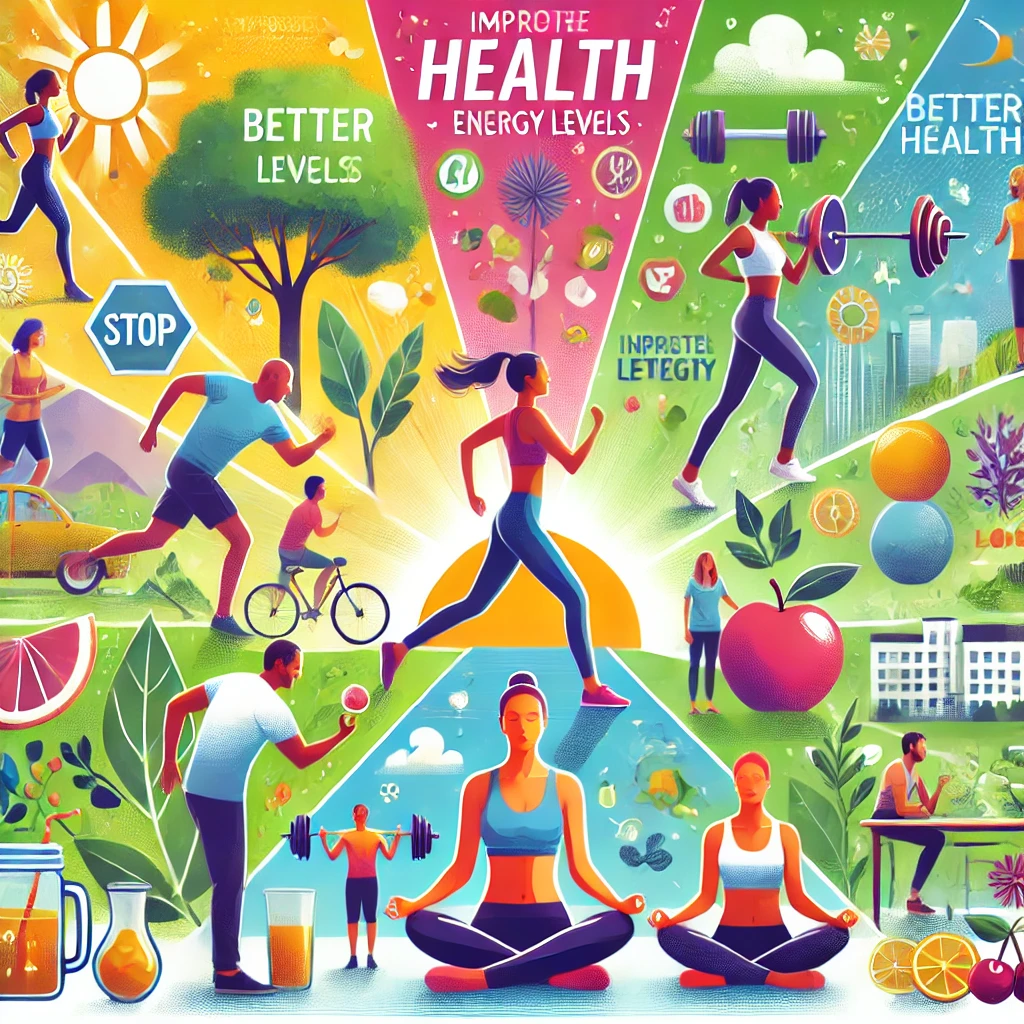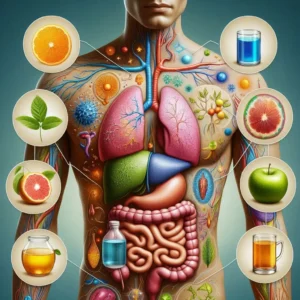In today’s fast-paced world, many of us wonder: “How do I know if my body is good?” While this question might seem subjective, there are clear indicators and methods to evaluate your physical and mental well-being. Whether you’re aiming for better energy levels, improved fitness, or simply a healthier lifestyle, understanding the signs of a “good” body can set you on the path to success.
This article dives deep into the science and practical steps behind assessing your health. By the end, you’ll have all the tools needed to answer the question, “Am I physically fit?” and more importantly, how to improve if necessary.
Table of Contents

1. Understanding the Signs Your Body Is Healthy
1.1 What Does It Mean to Be Physically Fit?
Physical fitness isn’t just about hitting the gym or running marathons; it encompasses several key components:
- Cardiovascular Endurance : Can you sustain physical activity over time without getting winded?
- Muscular Strength & Flexibility : Are your muscles strong enough to support daily activities while maintaining flexibility?
- Body Composition : Do you maintain a healthy balance between fat and muscle mass?
Being physically fit means your body functions optimally across these areas. For instance, someone who can walk briskly for 30 minutes without fatigue likely has good cardiovascular endurance—a sign their body is in good shape.
1.2 Signs Your Body Is Healthy
Your body often sends subtle signals indicating its overall condition. Here are some common signs that suggest your body is functioning well:
- Consistent Energy Levels : If you feel energized throughout the day rather than experiencing extreme highs and lows, it’s a positive indicator.
- Strong Immune System : Fewer colds and illnesses mean your immune system is robust.
- Proper Digestion : Regular bowel movements and minimal bloating point to a healthy digestive tract.
- Balanced Mental State : Feeling calm, focused, and emotionally stable reflects not only mental but also physical health.
For example, if you notice consistent energy after eating nutrient-dense meals, it could indicate your diet supports optimal bodily function.
1.3 Daily Habits of Healthy People
Healthy individuals share certain habits that contribute to their well-being. Incorporating these practices into your routine can help ensure your body stays “good”:
- Regular Exercise : Aim for at least 150 minutes of moderate aerobic activity per week.
- Hydration : Drink plenty of water—aim for 8–10 glasses daily.
- Nutrient-Rich Diet : Focus on whole grains, lean proteins, fruits, and vegetables.
- Adequate Sleep : Prioritize 7–9 hours of quality rest each night.
These small changes add up to significant improvements in long-term health.

2. Self-Assessment Tools and Techniques
2.1 How to Check If You’re Healthy Without a Doctor
While professional medical evaluations are crucial, self-assessments provide valuable insights into your current state. Here are simple ways to gauge your health:
- Resting Heart Rate (RHR) : Measure your pulse when you wake up. A lower RHR generally indicates better cardiovascular health.
- Blood Pressure : Use a home monitor to check your blood pressure regularly. Normal readings should fall below 120/80 mmHg.
- Sleep Quality : Track how rested you feel upon waking. Poor sleep may signal underlying issues.
By monitoring these metrics, you gain actionable data to adjust your lifestyle accordingly.
2.2 Am I Physically Fit Quiz: Questions to Ask About Your Health
Take a moment to reflect on the following questions:
- Can you climb stairs without becoming short of breath?
- Do you experience frequent fatigue or low energy despite adequate rest?
- Are you maintaining a healthy weight through balanced nutrition and exercise?
Answering honestly helps identify areas needing improvement. For instance, if climbing stairs leaves you breathless, incorporating cardio exercises like walking or cycling might benefit you.
2.3 Ways to Tell If Your Body Is in Shape
Beyond numbers on a scale, consider physical markers like:
- Muscle tone and definition
- Posture alignment
- Agility and coordination
Even simple tasks like bending down to tie shoelaces or carrying groceries can reveal much about your fitness level. If these actions feel effortless, chances are your body is in relatively good condition.
3. Nutrition and Energy for Optimal Health
3.1 Foods That Make You Feel Good
Diet plays a pivotal role in determining whether your body feels “good.” Certain foods boost energy levels, enhance mood, and promote overall wellness:
- Complex Carbohydrates : Whole grains like oats and quinoa provide sustained energy.
- Lean Proteins : Chicken, fish, and tofu repair tissues and build muscle.
- Fruits and Vegetables : Rich in vitamins, minerals, and antioxidants, they support vital functions.
Hydration cannot be overstated either. Dehydration leads to fatigue and reduced cognitive performance, so make sure you drink enough water throughout the day.
3.2 Diet for Better Physical Health
Creating a balanced diet tailored to your needs ensures long-term benefits. Consider the following tips:
- Limit processed foods high in sugar and unhealthy fats.
- Include a variety of colorful produce in every meal.
- Practice portion control to avoid overeating.
A diet rich in nutrients directly impacts how your body performs. For example, athletes often consume higher protein intakes to fuel muscle recovery post-workout.
3.3 Indicators of Good Health Through Nutrition
Noticeable improvements in skin clarity, hair strength, and nail growth often stem from proper nutrition. Additionally, fewer cravings and stabilized blood sugar levels signify a well-nourished body.

4. Mental and Emotional Well-Being
4.1 Signs Your Mind and Body Are Balanced
Mental and physical health go hand-in-hand. Look for signs such as:
- Reduced stress and anxiety
- Improved focus and productivity
- Enhanced emotional resilience
When both aspects align, you experience greater harmony and satisfaction in life.
4.2 How to Feel Good Mentally and Physically
Adopt mindfulness techniques, meditation, and journaling to manage stress effectively. Engaging in regular physical activity releases endorphins, known as “feel-good” hormones, which elevate mood naturally.
For instance, taking a morning walk outdoors exposes you to sunlight, boosting vitamin D production while clearing your mind.
4.3 Tips for Improving Mental and Physical Health
Combine physical and mental strategies for maximum impact:
- Set realistic goals and celebrate small victories along the way.
- Prioritize rest and relaxation to prevent burnout.
- Connect with supportive communities or friends for motivation.

5. Actionable Steps Toward Better Health
5.1 How to Improve Your Health in 30 Days
Transforming your health doesn’t require drastic measures overnight. Start with incremental changes:
- Week 1: Increase water intake and reduce sugary beverages.
- Week 2: Add 15 minutes of walking to your daily routine.
- Week 3: Replace one meal with a plant-based option.
- Week 4: Dedicate time to relaxation or meditation.
Small wins compound over time, leading to lasting results.
5.2 Daily Routine for Better Physical and Mental Health
Establish a structured routine to incorporate essential elements:
- Morning: Begin with stretching or light yoga followed by breakfast.
- Midday: Take breaks during work to stretch or take short walks.
- Evening: Wind down with reading or gentle movement before bed.
Consistency builds momentum, making healthier choices second nature.
5.3 Ways to Stay Positive and Healthy
Maintain an optimistic outlook by focusing on what you can control. Surround yourself with positivity and practice gratitude daily. Remember, progress takes time, and setbacks are part of the journey.
Conclusion: Revisiting “How Do I Know If My Body Is Good?”
To determine whether your body is “good,” assess various factors including physical fitness, nutritional habits, and mental well-being. This comprehensive guide equips you with the knowledge and tools to evaluate and enhance your overall health.
Start small, stay consistent, and remember that everyone’s body responds differently. Embrace the process, and soon you’ll find yourself feeling stronger, more energized, and confident in answering the question: “How do I know if my body is good?”
FAQs
Q1: What are the first signs my body is improving?
A: The first signs your body is improving include increased energy levels, clearer skin, improved digestion, and better sleep quality. You may also notice reduced fatigue, enhanced focus, and a more positive mood as your body adapts to healthier habits.
Q2: Can I rely solely on self-assessment for health checks?
A: While self-assessment can provide valuable insights into your physical and mental well-being, it shouldn’t replace professional medical evaluations. Self-assessments help monitor daily changes, but they may not detect underlying conditions that require expert diagnosis.
Q3: How long does it take to see results from lifestyle changes?
A: Results vary depending on individual circumstances, but most people begin noticing improvements within 2–4 weeks. Initial changes might include increased stamina, better mood, and reduced cravings. Significant transformations in fitness or weight loss could take several months of consistent effort.
Q4: Is it normal to feel tired initially when starting a new fitness regimen?
A: Yes, feeling tired at the start of a new fitness routine is normal as your body adjusts to increased physical demands. This temporary fatigue usually subsides as your endurance improves with regular exercise. Staying hydrated and ensuring proper rest can help mitigate these effects.
Q5: What are the signs my body is unhealthy?
A: Signs of an unhealthy body include persistent fatigue, frequent headaches, poor digestion, weight gain or loss, and weakened immune function. If you notice these symptoms, consider making lifestyle changes or consulting a healthcare professional.
Q6: How do I check my physical fitness level at home?
A: To check your fitness level at home, measure your resting heart rate, try a plank hold test for core strength, and assess your flexibility with a sit-and-reach exercise. These simple tests give insight into your cardiovascular, muscular, and flexibility capabilities.
Q7: What foods should I eat to improve my body’s health?
A: Focus on nutrient-dense foods like whole grains, lean proteins, fruits, vegetables, and healthy fats. Incorporate omega-3 rich foods (e.g., salmon), fiber (e.g., oats), and hydrating options (e.g., cucumbers) to support overall health and energy levels.
Q8: Can stress affect how I feel physically?
A: Yes, stress significantly impacts physical health by causing muscle tension, fatigue, digestive issues, and weakened immunity. Managing stress through relaxation techniques, exercise, and mindfulness can improve both mental and physical well-being.
you may also like:
What should I do immediately after running? A Complete Guide to Post-Run Recovery
What Happens When You Start Eating Healthier? A Complete Guide to Transforming Your Body and Mind
Mediterranean Salad Recipes: A Fresh Path to Health, Flavor, and Joy
Salad Recipes for Weight Loss: The Ultimate Guide to Healthy Eating and Wellness
Unlock the Benefits of Salad: Nutritional Power for Health, Wellness, and Active Living
High Protein Salad Recipes: The Perfect Fit for Health and Active Lifestyles
More relevant articles here >>>
More Health and Wellness salad recipes >>>
More Energy and Active Lifestyle salad recipes >>>
More Cultural and Seasonal Recipes >>>
References:
“Physical Activity Guidelines for Americans” by the U.S. Department of Health and Human Services
“Assessment of Physical Fitness and Its Relationship with Health Outcomes” by Jurca et al. (2005)
“The Role of Nutrition in Maintaining Energy Levels and Overall Health” by Slavin et al. (2014)




